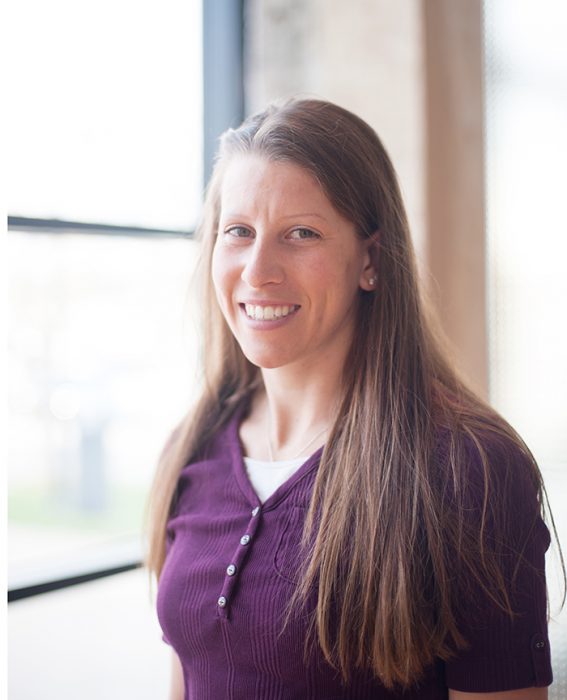For almost 35 years, Dena Dye has played an integral role in Wallace Design Collective’s success – and not in a way you might think. Although you won’t find her collaborating on structural, civil, or landscape design projects or seeking out new clients, her contributions have been just as important in helping Wallace grow as a company and develop its reputation as a respected, successful AEC consultant.
As manager of Wallace’s accounting department, Dena has enjoyed the challenge of keeping track of Wallace’s day-to-day financials. Her job covers everything from resourcefully working with clients to facilitate payments to ensuring our principals have the accurate and up-to-date data and analytics they need for decision-making. For over three decades, she’s supported our engineers and designers by letting them pursue their creative passions – all while she pursues hers.
In honor of International Accounting Day on November 10th and Dena’s well-deserved retirement at the end of the year, we wanted to shine the spotlight on Dena and all that she’s done for Wallace as a behind-the-scenes accounting guru. She’s gone from being a young, shy new hire tasked with modernizing the Excel timesheet system of a 30-person structural design company in Tulsa to being an assertive Associate managing the accounting department of a 240+ person national firm that handles structural, civil, landscape architecture, surveying, and more.
As one of our treasured Wallace Lifers, her contributions have undoubtedly shaped Wallace’s success. However, the relationship has worked both ways; Wallace has left a positive imprint on Dena’s professional and personal life as well.
Read on to hear about Dena’s insights into accounting and reflections on her Wallace career:
What misconceptions do you think engineers and other design professionals have about accounting? Anything you wish they knew?
I think maybe people think we just crunch numbers. But honestly, accounting is not about math. Obviously, you should be good at it, but accounting is really just making sure everything gets coded to the right place – that we get the bills paid and charged the correct accounts. At the end of the day, we're processing the daily transactions to show if we're making a profit or not.
It's kind of hard to run a company if you don't know if your projects are making money, or if the company is making money. So, we set up budgets and try to stay within those budgets, and if we exceed them, we're trying to figure out why…I think there's probably a lot more to accounting than most people think.
While at Wallace, you’ve overseen two major accounting software conversions. What was one of the biggest challenges of these initiatives?
When I was hired 35 years ago, Wallace was actually doing all of their payroll and billing in Excel. Just about that time, we started getting a lot of Walmart work. We were growing rapidly and had a lot of projects, so the Excel spreadsheet system was just not keeping up. They purchased a software program with job costing, so when I started, I had to go back and recreate all that job cost information from the manual timesheets and enter it into the software. The challenge was also making sure everyone had their timesheets filled out correctly so that the correct time was getting into the projects.
What have you especially enjoyed about accounting for an AEC consultant?
I like the decision-making. I love digging in deep – figuring out if we have something that needs to be different and finding how we can make it work better. When a client wants something a certain way, we don't say ‘we can't do that,’ we figure out a way to make it happen.
What have been some challenges or frustrations?
It’s difficult because clients do want everything their way…so you just have to have a lot of patience and not get frustrated. Whatever we can do to make it easier for them, we're going to get paid faster and have happier clients, so you can't really have a chip on your shoulder. You have to be very, very flexible.
Why have you stayed at Wallace for the duration of your career? What do you see in this company that makes it unique?
I do like how Wallace has changed over the years. Having started out as a company only doing structural, when we brought on civil, landscape, and surveying, we started getting different kinds of clients, so that’s been interesting.
I like the flexibility of working hours. Management just knows that you’re going to do your job; you don’t have to worry about someone micromanaging you. You know what your job is, and Wallace expects that you are going to get it done.
Most of all, I would say the culture. Having started at Wallace as a young mother with two kids, I've never ever felt like my family didn't come first, or that I had to disregard my family to have a job. That's probably the biggest thing. I've been through a lot of things since then, and everyone has been so supportive. That's a culture that was created, and I really appreciate that.
You’ve mentioned before that becoming an Associate at Wallace was an opportunity that you may not have gotten elsewhere. What does being an Associate mean to you?
Being asked to be an Associate was a big deal. I felt like it meant that I was respected and appreciated and that while not being an engineer, what I was doing was still valued. So being an associate does make me feel proud, and that after 35 years, I can say “job well done.”
How has your career turned out compared to where you thought you would end up when you first left school?
I think I kind of fell into [accounting]. When I graduated high school, I really didn’t know what I wanted to do, so I was just taking some general courses at Tulsa Community College. And then at my second job, they trained me for an accounts payable job. I just found that was my niche. I was very shy, so I liked accounting, where I didn't have a lot of contact with people. At that point, I started going to school and taking accounting classes, working towards an associate’s degree.
But I always just thought I would just work under somebody else, like I would never be the one in charge. So I guess that kind of surprised me, that being that shy, insecure person I could manage people. I never thought I had that in me. And I think most of my coworkers would say I've done a pretty good job!
We couldn’t agree more! And I think I speak for all of our design professionals when I say “Thank you!” to Dena and all of our accounting personnel for taking care of the routine financial and bookkeeping aspects of our business that we engineers and designers generally dread. We couldn’t do what we do without them.



There are no comments.